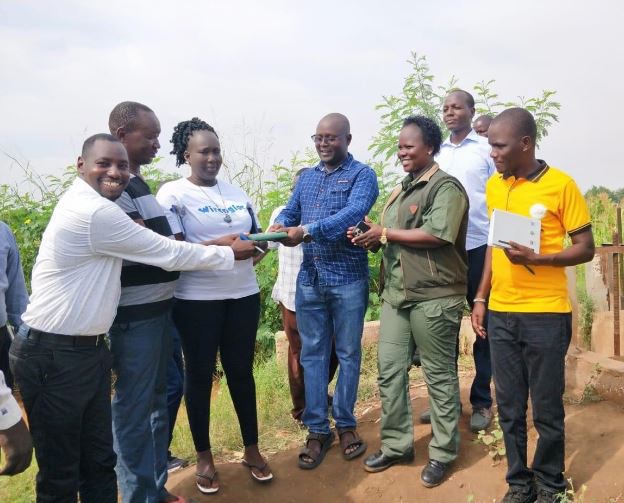Turkana County launches rehabilitation and expansion of Katilu irrigation scheme

Today, the Turkana County government initiated the rehabilitation and expansion of the Katilu surface irrigation scheme in Turkana South Sub County.
Today, the Turkana County government initiated the rehabilitation and expansion of the Katilu surface irrigation scheme in Turkana South Sub County. The project encompasses bush clearing along canal corridors, construction of 2,000 meters of earth-lined canals, installation of 10 division boxes with sluice gates, and five footbridges.
Dr. Antony Apalia, the county executive for Agriculture and Livestock Development, presided over the site handover and highlighted the project's potential to bolster security and encourage fodder farming, mitigating conflict between farmers during dry spells. He urged the contractor to complete the project within the agreed timeframe and acknowledged the National Irrigation Board Authority's support in its successful implementation.
More To Read
- Turkana unveils private sector engagement framework to foster urban development
- Reformed warriors in Turkana receive Sh2.5 million to support business start-ups
- UK-based company partners with Turkana County to operationalise livestock breeding centre
- Turkana develops evaluation framework to improve healthcare services
Chief Officer for Agriculture and Land Reclamation, Jenerose Tioko, emphasized the importance of upgrading the scheme to unlock its full potential as a food hub. She announced a collaborative effort with local farmers to tackle the invasive Mathenge weed that has hampered the irrigation system's productivity. Katilu ward member of the county assembly, William Etubon, commended the expansion and rehabilitation initiative, underscoring its capacity to boost agricultural output.
The National Irrigation Authority reports that the irrigation scheme, situated along the Turkwel River, was established in 1966 and operational by 1970. Originally intended to settle nomadic communities, the 2,800-acre scheme has demonstrated success with crops like sorghum, high-value horticulture, green grams, cabbages, and watermelons.
Top Stories Today


























